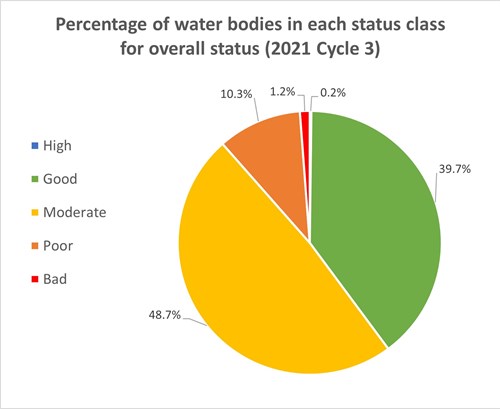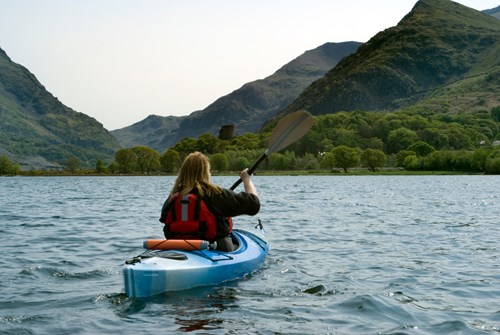What are River Basin Management Plans, and why should you get involved?

Do you enjoy spending time in or around our waters? Do you care about the condition of our waters and our plans to improve them?
Then now is the time to get involved in the first phase of planning for Wales’s next River Basin Management Plans.
River Basin Management Plans (RBMPs) set out what we know about the rivers, lakes, canals, groundwaters, estuaries and coastal waters of Wales. They cover what we need to do to improve them and how we will do this. We have a duty to create these as part of the Water Framework Directive (WFD) Regulations 2017. RBMPs are used across the rest of the UK and the European Union and are updated every six years. There are three RBMPs which cover Wales – The Dee, Western Wales and the Severn.
Current status of Welsh water
Within each plan, we have defined individual sections of water as ‘water bodies’ and these are given a classification as high, good, moderate, poor, or bad. This is based on their ecology and water quality. In our last published RBMP almost 40% of Welsh water bodies were good or high overall status, the graph below gives more information.

Challenges facing water in Wales
While much progress has been made to improve our water quality, we know there is much more to be done to get out waters to the condition we all want. The climate and nature emergencies that Wales faces will add to this challenge. Within each water body that doesn’t achieve good we investigate the reasons why. Some of the biggest challenges we face are:
- Physical modifications – for example flood defences and weirs, and changes to the natural river channels. They can change river flows, how sediment moves causing loss of habitat and act as barriers to fish.
- Pollution from rural areas – the effects of poor agricultural practice, rural land management, and forestry on the water environment, causing sediment, nutrients and pesticides to run-off into water bodies.
- Pollution from wastewater – sewage can contain large amounts of nutrients (such as phosphorus and nitrates), ammonia, faecal bacteria and chemicals which can harm our water environment.
- Pollution from towns, cities, and transport – rainwater running over roads and other hard surfaces can carry pollutants into water bodies. Chemicals from contaminated land, and water from houses and appliances ‘misconnected’ to surface water drains rather than sewers can also be an issue.
- Pollution from mines – contaminated water draining from mines, most of which are no longer used.
- Changes to the natural flow and level of water – taking too much water from rivers, canals, lakes and groundwater, means less water available. Altering water levels can affect habitats and species such as fish.
What we plan to do to improve our water

In the RBMPs we set out what is needed to:
- protect our water bodies and prevent deterioration.
- aim for all water bodies to achieve good status
- promote the value of the water environment.
To achieve these for each water body we have objectives. To meet these objectives, the Programme of Measures (PoMs) has been put in place, these are National and local actions. Some of the PoMs apply to the whole of Wales, such as new legislation, policy, or a strategic approach. For example, a national ban on using a damaging chemical or a national strategy for prioritising and funding the remediation of abandoned mines. We also set actions at a local level to be clear on what is needed for a specific water body to protect and restore our waters.
We can’t do this work alone, we work with other organisations and stakeholders to achieve these aims.
How we will update these plans

From 2009 we have updated our plans every six years and have started to plan for the next update which will be published in December 2027.
We have an established approach to update these plans. This includes public consultations where we ask for your opinion on how you would like to see Wales’ waters protected, restored and promoted. We have opened our Working Together Consultation to ask how you would like to work with us in this important work. Next year (2025) we will have a second public consultation to better understand the issues and solutions now affecting our waters Both of these consultation shape the draft updated RBMPs where the public will have an opportunity to respond to the final consultation 2026.
Working Together Consultation
The Working Together Consultation is now open and closes on 20th December 2024.
